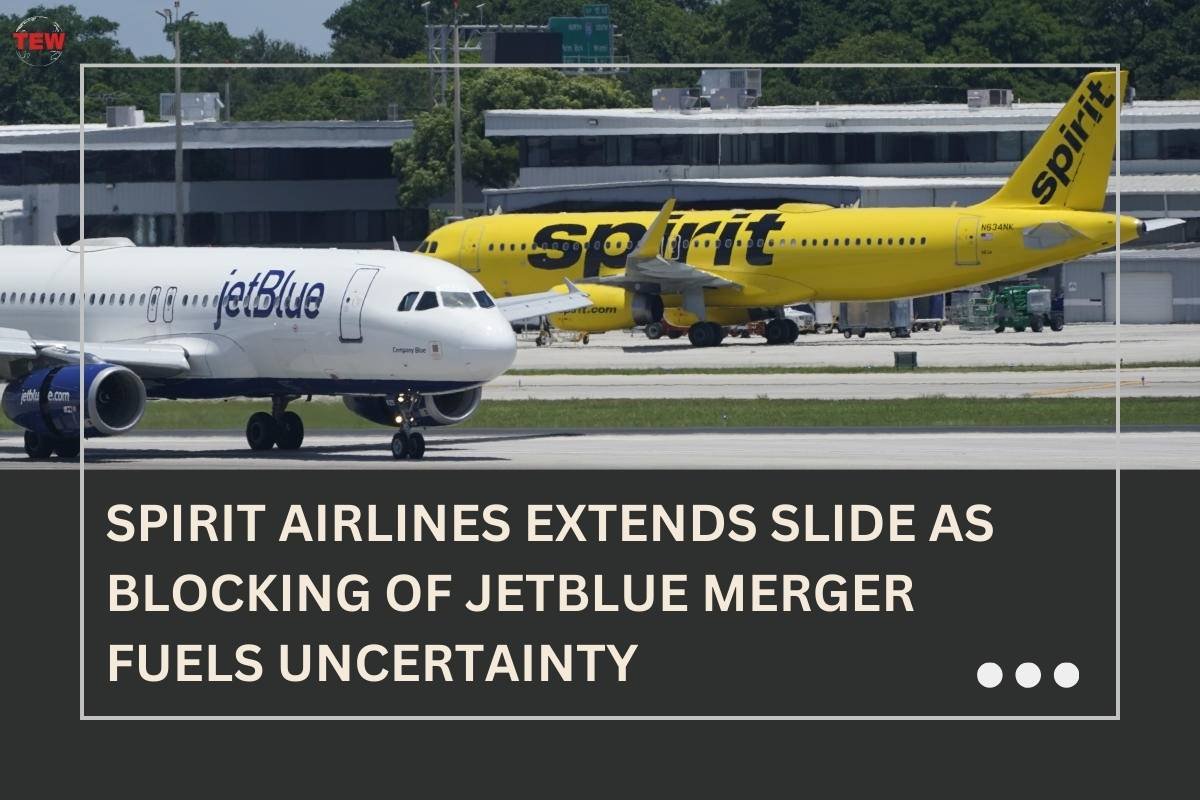(Source – Yahoo News)
Ultra-low-cost carrier Spirit Airlines experienced a sharp decline of 17% in its stock during Wednesday morning trade following a U.S. judge’s decision to block the airline’s planned $3.8 billion merger with rival JetBlue Airways.
This setback occurred after a federal judge sided with the U.S. Department of Justice, concurring that the proposed deal with JetBlue would negatively impact ticket buyers. The adverse ruling caused Spirit’s stock to lose nearly half of its market value on Tuesday, leaving the airline at a crossroads. Analysts speculate that Spirit might explore alternative buyers or even contemplate a bankruptcy filing, given the challenges it faces in maintaining profitability.
Create the fifth-largest carrier in the U.S.
Spirit Airlines has encountered difficulties remaining profitable, attributed to rising operating expenses and persistent supply chain issues. These challenges have raised concerns about the airline’s capacity to repay its outstanding debt set to mature next year.
Some analysts suggest that Spirit could consider a bankruptcy filing to streamline its balance sheet and reorganize it into a financially resilient airline. The most favorable scenario, according to TD Cowen analyst Helane Becker, would be a Chapter 11 filing followed by a liquidation (Chapter 7).
Spirit and JetBlue now confront critical strategic and financial decisions, as Citi analyst Stephen Trent noted. The proposed merger, which aimed to create the fifth-largest carrier in the U.S., would have provided a significant boost to Spirit.
Shares of JetBlue, which closed 5% higher on Tuesday, also experienced a 6.2% decline in morning trade. Deutsche Bank analysts expressed skepticism about the likelihood of the merger proceeding, citing regulatory hurdles even if the carriers decide to appeal.
Judge blocks JetBlue-Spirit Airlines merger
Excess capacity in key markets has weakened Spirit’s pricing power
Spirit Airlines has been particularly impacted by issues with RTX’s Pratt & Whitney Geared Turbofan (GTF) engines, resulting in the grounding of several jets. This problem is expected to persist in 2024. Additionally, excess capacity in key markets has weakened Spirit’s pricing power, necessitating steep discounts to sell sufficient seats and making the path to recovery challenging.
J.P. Morgan equity analyst Jamie Baker highlighted the need for more valuation support for Spirit in the absence of the merger. LSEG data reveals that Spirit’s ratio of enterprise value to sales for the next 12 months is 1.3, compared to 0.6 for potential acquirer JetBlue. A lower ratio signifies a more appealing investment opportunity.
Despite the adverse ruling, the airlines have the option to appeal. In a joint statement, JetBlue and Spirit stated that they evaluate the “next steps as part of the legal process.” The uncertainty surrounding the future of the merger has cast a shadow over both airlines, prompting them to reassess their options in light of the legal challenges they currently face.





